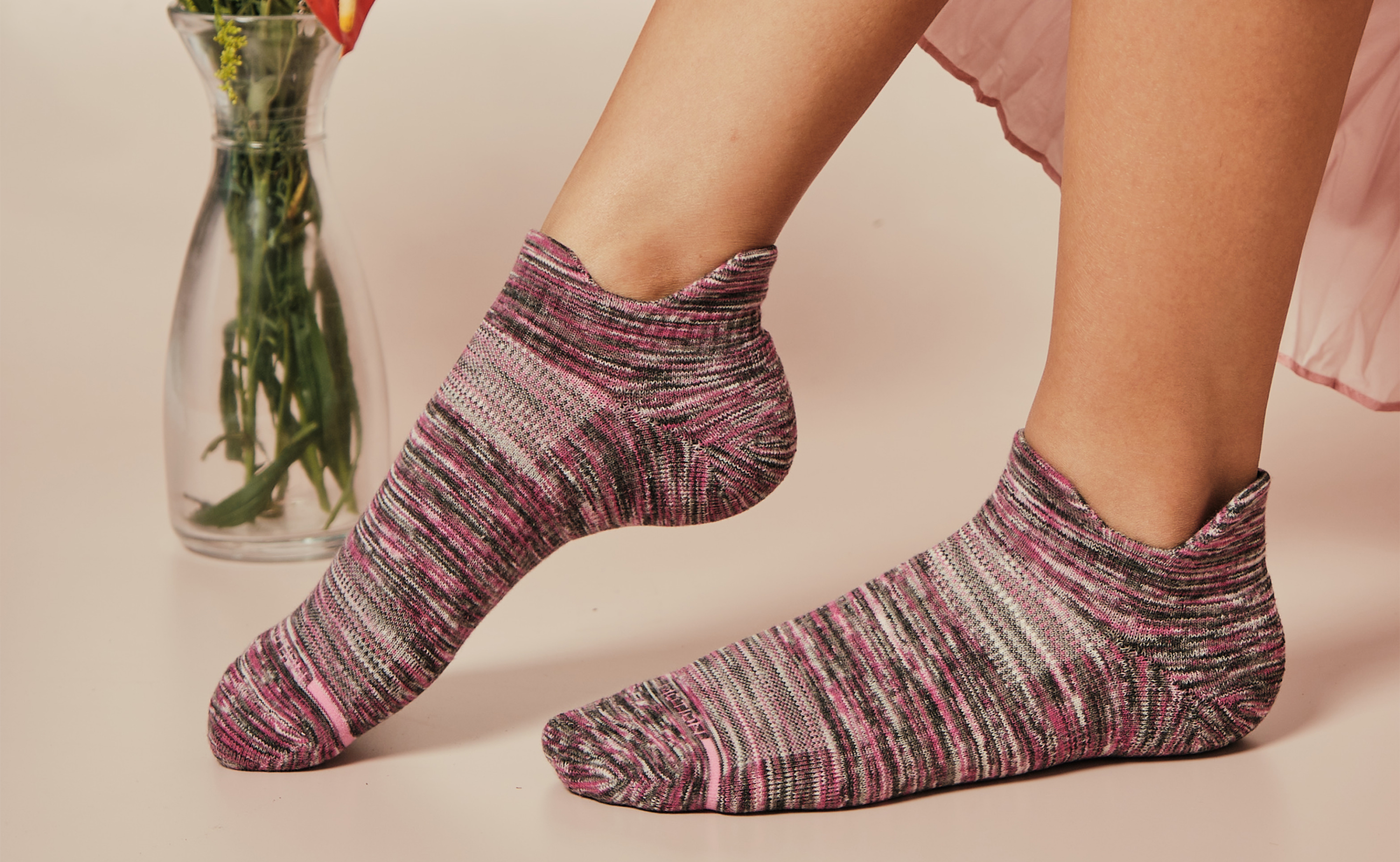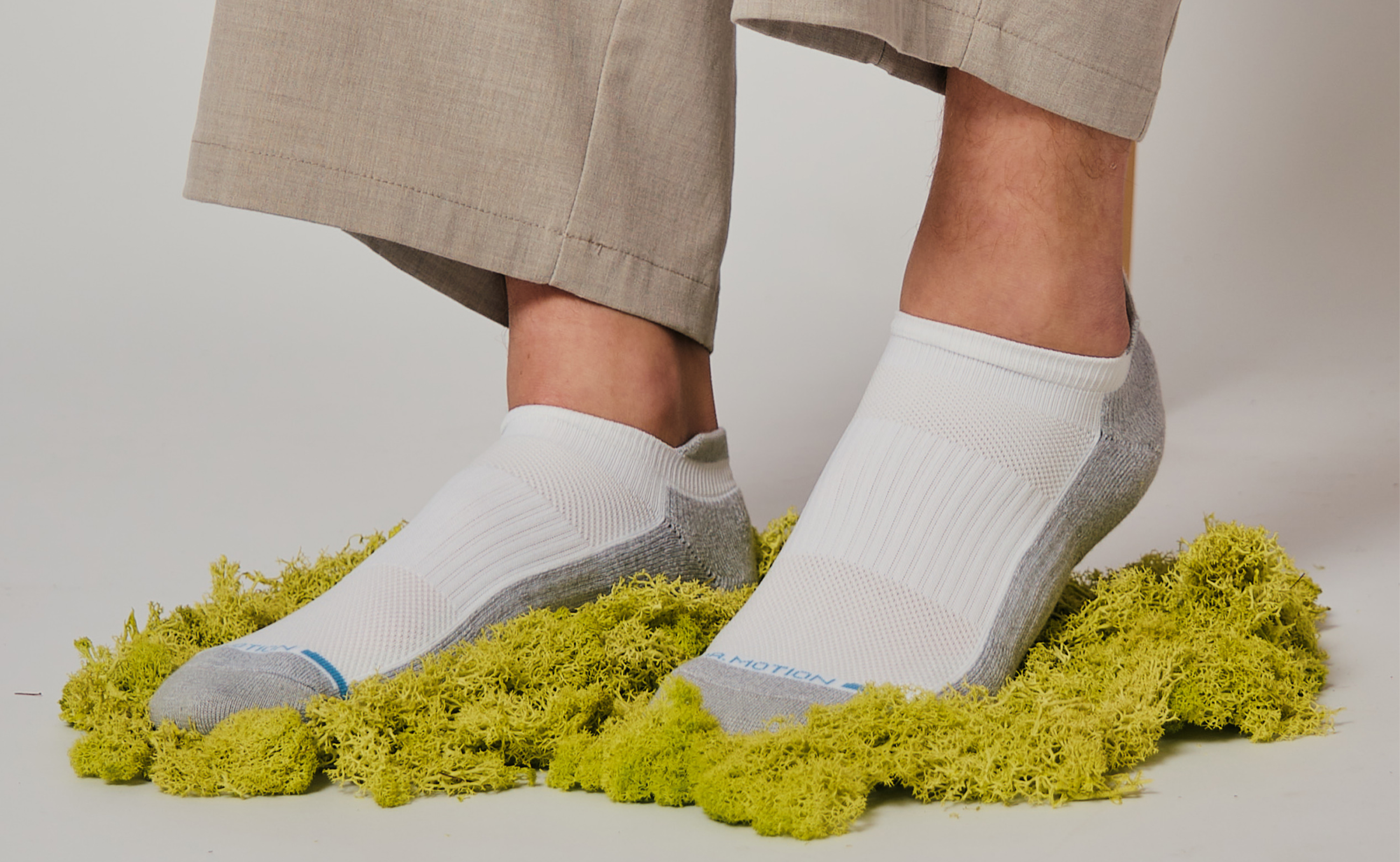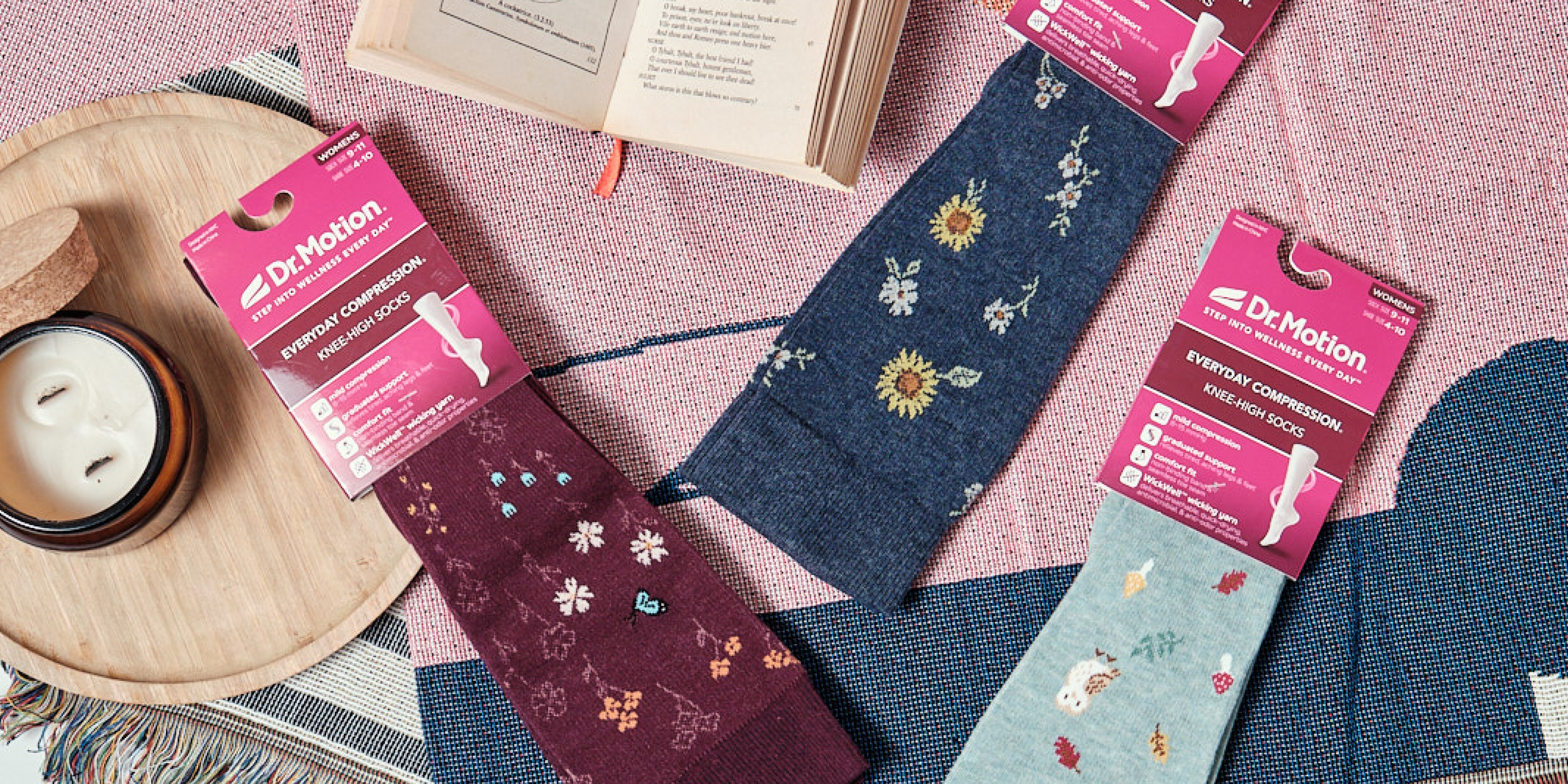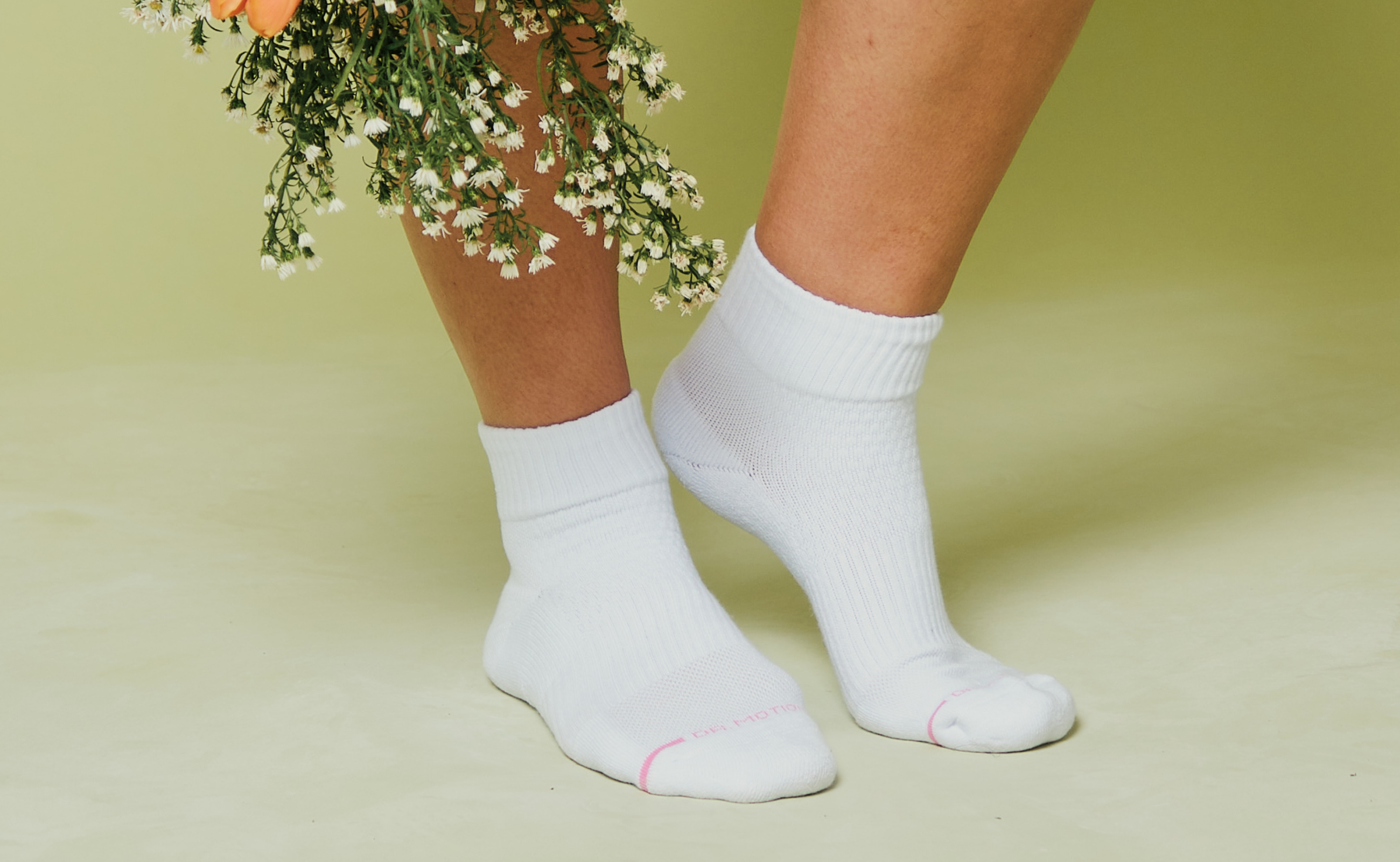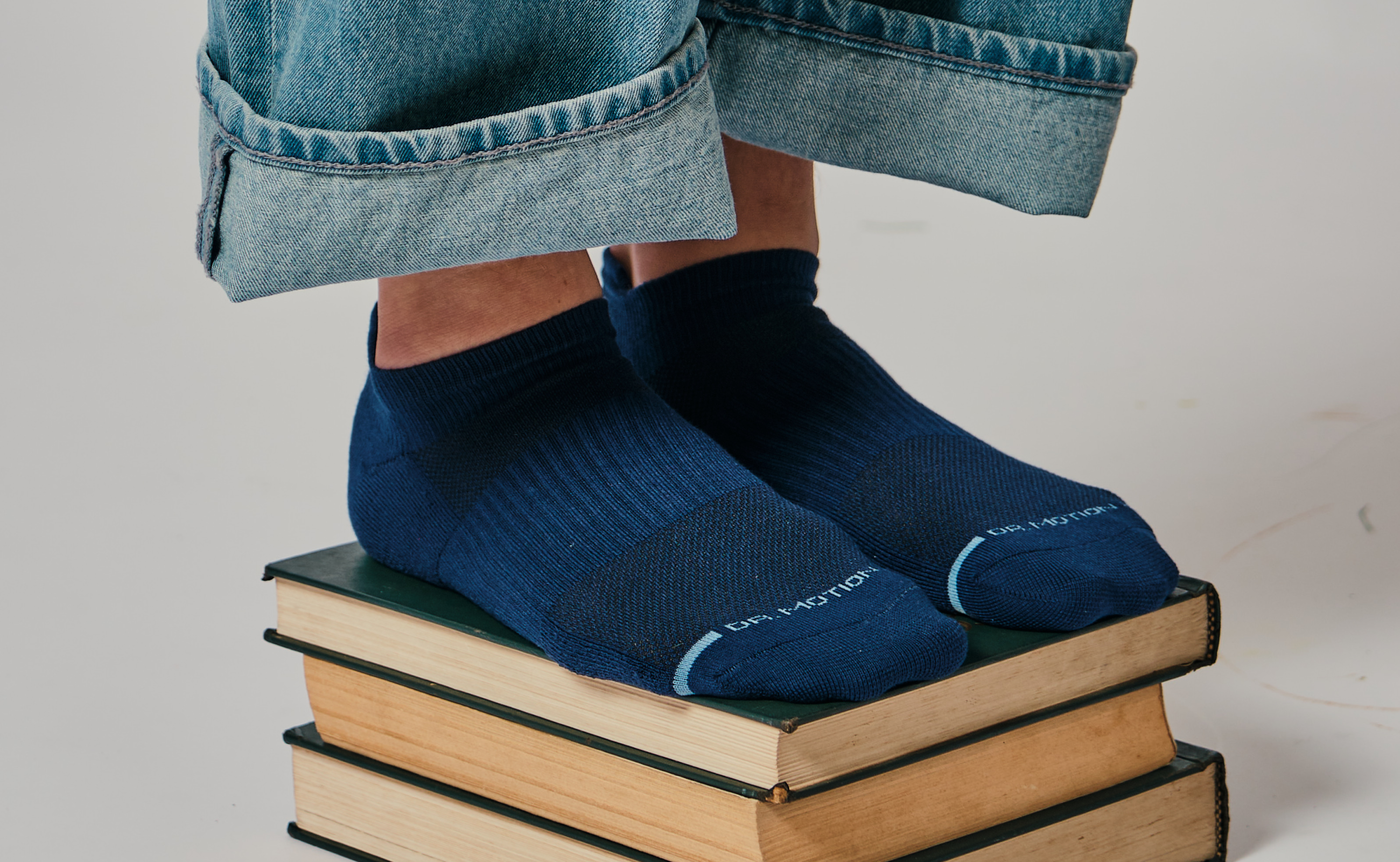How to Care for your Compression Socks
Laundry day is here and you’re looking at brand new pairs of Dr. Motion compression socks, and wondering what’s the best way to clean them? If you are not sure whether or not to throw them in with your washing machine with the rest of your laundry, we have some tips and tricks on how to care for your compression socks so they last you a long time.
The Fabric Materials of Compression Socks
At Dr. Motion, our compression socks are made of various materials. They are mostly cotton/polyester blend or microfiber nylon with some spandex and nylon for stretch. They are easy to put on, and you can comfortably wear compression socks all day.
The breathability of the cotton helps your feet and legs stay cool while wearing the socks. The fabric is anti-microbial and anti-odor, so you don’t have to worry about bacteria or stinky feet.
We also offer Solid Copper Infused Knee-High, Ankle Socks, and athletic compression socks. These are mostly a microfiber nylon/polyester blend that with a copper ion infused heel is going to offer anti-inflammatory benefits, and promote healing and softer skin.
No matter which style of sock you choose from Dr. Motion, you can follow our instructions for compression sock care.

HOW TO WASH COMPRESSION SOCKS IN WASHING MACHINE
If you are wondering, “can you machine wash compression socks?” The answer is yes. The best way to wash compression socks in the washer on the delicate setting with cold water.
Wash your socks with like colors only, so that your other clothing items don’t bleed into and ruin your socks. Avoid using regular bleach as well, and stick to non-chlorine bleach that won’t damage your socks. Non-chlorine bleach is sometimes called “oxygen bleach” which has the benefit of not bleaching colored clothing items.
As far as the type of laundry soap to use, you can stick to your regular brand. You don’t need to purchase any special type of laundry detergent.
For the dryer setting, tumble dry your compression socks on low or hang dry them. Our care instructions are also listed on Dr. Motion’s website.
Notes on Shrinkage
You may notice that when you wash your compression garments in the washing machine and dry them in the dryer, the socks come out looking a little smaller. That’s just due to the spandex content. The look of the smaller socks won’t change how they fit you. If you follow the directions to machine wash them, you won’t have any shrinkage issues to worry about.
Other Ways to TAKE CARE OF YOUR COMPRESSION SOCKS
If you don’t have a washing machine, you can always hand wash your socks. Just make sure that you do so with mild laundry soap and cold water.
Fill up a small tub or sink with some cold water and soap. Swish your socks around in the water for a minute or two, and then leave them soaking for 15 minutes. Rinse well after that, and squeeze out the excess water. The last step is to let them hang dry.
How Long Compression Socks Last
Most sock companies that make compression socks recommend that you replace them every six months. The fabric and elasticity are naturally going to wear down when you wear them every day. It’s important to have a few different pairs if you plan on wearing them all the time.
A good rule of thumb to follow is that when you notice it’s too easy to put on your socks because they have stretched out too much, it’s time for some new pairs. They still need to feel snug on your feet and legs to be able to work effectively.
Takeaways
- Compression socks are made of a cotton/polyester blend with spandex and nylon
- Machine wash compression socks on delicate and with cold water.
- Shrinkage isn’t a problem.
- Hand-washing your compression sock is also an option.
- Replace a pair of compression socks after 6 months or when they lose their tightness.
Best Compression Socks for Men & Women
When you are ready to experience the benefits of compression socks, look no further than Dr. Motion. We have a variety of styles and patterns that you’ll love wearing, and won’t mind cleaning.
Disclaimer: This article provides information solely for educational purposes, including but not limited to text, graphics, images, and other materials contained herein. This article is not intended to substitute for professional medical advice, diagnosis, or treatment. Always seek the advice of your physician or another qualified healthcare provider with any questions you may have regarding a medical condition.


